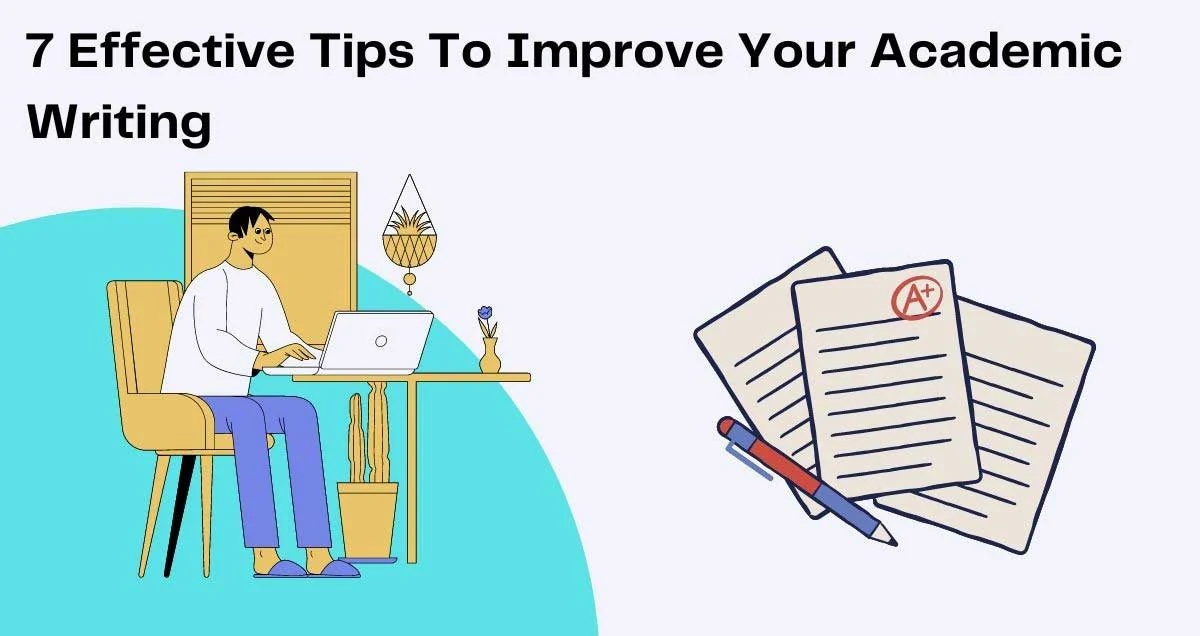There are various ways that students can improve their writing. So, which are the best tips for it?
Academic writing isn’t easy, and it can be
difficult for many students. However, there are ways that you can make it
easier for yourself. In this article, you will find a variety of tips that’ll
help you with essential aspects of academic writing. So, let’s jump right into
it.
Why Academic Writing Skills Are Important
Academic writing
skills are important for students because they are fundamental skills that will
be used in the professional world. Students should aim to write with quality
and to stand out with their work. The two major steps to understanding academic
writing skills include:
· The first step is learning about the different aspects of academic writing skills aspects. These include grammar, punctuation, sentence structure, and vocabulary usage. In addition, it is important to know how to structure an essay, how long it should be, and what types of essays there are.
The next step is to start practicing your skills so that you can become a better writer overall. There are many ways you can do this; we’ll explore a few of those in this article.
You can also find resources online, such as
podcasts or articles on the topic, that can help improve your writing skills in
general and specifically for the academic world.
You Should Read: Effect
of Plagiarism on Student Career
7 Effective Tips To Improve Your Academic Writing In 2024
1. Researching A Lot
A lot of things are easier said than done in academic writing. And researching is one of them. A lot of students wish to save time, and doing so, they end up making a mess of their research. So, researching a lot doesn’t mean spending 5 hours on it. Instead, it means:
Thoroughly analyzing the topic that you’re given;
Understand key aspects and sub-aspects of your subject;
·
Take notes and remember
websites, books, and authors for citation;
·
Research to form your own
opinion.
In many academic writing styles, your understanding and abstract of a topic are more important than what an expert says. Therefore, your research should help you understand the subject at hand and form an opinion.
Books For Reading: Academic Writing
2. Proofreading Thoroughly
Proofreading isn’t just about finding
spelling errors. Well, it largely is, but proofreading can be done for more
than just finding silly spelling errors and punctuation mistakes. Nowadays, you
have tools that can help you do that and save you a ton of time.
Instead of that, what you should be doing
is spending time understanding how you can make your text generally better.
Such as:
·
Is there a paragraph that’s too
long?
·
Is there something you can
describe better?
·
Is there something you can
simplify/define better?
These are the main purposes of proofreading nowadays. Besides that, you need to compare your content against the guidelines. So, proofreading should be meant to fix issues like that.
3. Paraphrasing For Various Purposes
Paraphrasing is for more than just avoiding
plagiarism. Many students think this is the only thing it’s good for. And they
aren’t wrong for the most part. However, paraphrasing can be used for:
·
Avoiding similarities with
other content (not just plagiarism);
·
Achieving a specific content
tone, voice, or style;
·
Rephrasing to describe
something in better words.
Therefore, whether you paraphrase manually
or use an online paraphrasing tool,
it’s imperative that you paraphrase for more than one purpose.
And the good thing is, when you will use an online paraphrasing tool, you can automatically achieve all of the above-mentioned purposes.
You Should Read: Tips to Write a High-Quality Research Paper
4. The Art Of Conciseness
Long and winding content isn’t anybody’s
favorite. If you’re a student, do you think your teacher wants to read a
50-word sentence? Or worse, a 15-line long paragraph? They don’t like either of
those things, and you should tend to that.
That’s when being concise comes into play.
The rules are simple, and you should remember them, such as:
·
Write a sentence of no more
than 10-15 words. Sometimes 15-20 is acceptable but always try to reduce or
break the sentence into two.
·
No paragraph above 3-4 lines is
acceptable. Try to keep a paragraph within 3-4 sentences.
These two golden rules of writing will help you write concise and brief content. So, make sure you follow them thoroughly.
5. Readability Is Better Than Complexity
Readable content is a lot more preferred than
using words that you might forget the meaning of. Sometimes, students would
fire up a vocabulary online and learn new words. But once they’ve used them in
their academic content, they’d forget the meaning themselves.
There’s a reason simplicity is the best it makes your content more readable. Granted, you need to use vocabulary to avoid being repetitive. But that doesn’t mean you get to be overly complex or write content that’s just not easy to read.
6. Brief But Descriptive
Being brief doesn’t mean you can avoid
being descriptive. There are times when you can simply describe a thing in a
couple of words instead of taking a drive around it. Therefore, try using words
that briefly but accurately describe an idea.
An example of this would be:
“A
sleek black car with shiny features.”
Now, this explains just what the car looks
like. But what would be the unacceptable version of this? Here’s what:
“The
car seemed as if it had just come out of the showroom. The shiny black features
made it apparent and could be seen from afar.”
Just to be clear, there’s nothing wrong with the latter sentence(S). However, it’s way too long, and you can basically do the same thing in a few words.
7. Reading A Lot
One thing that could make a writer is a lot
of reading. The more you read what you write, the more you will understand the
art of delivery. This means reading everything that comes your way, such as
newspapers, articles, other academic pieces, books, and literature.
Conclusion
These seven major tips could help you write
quality content and become a better writer in 2022. So, for an academic writer,
these seven tactics aren’t’ just tips but rather rules that they should live
by.









